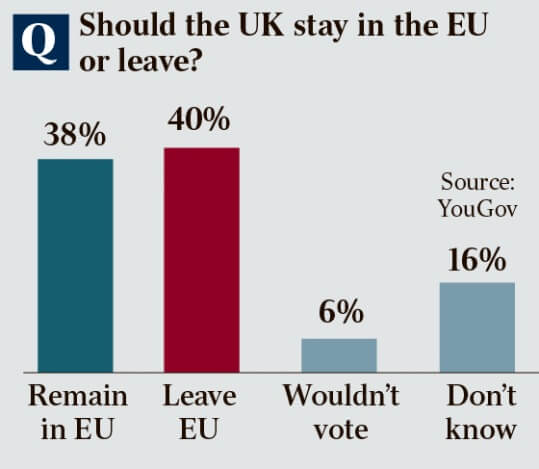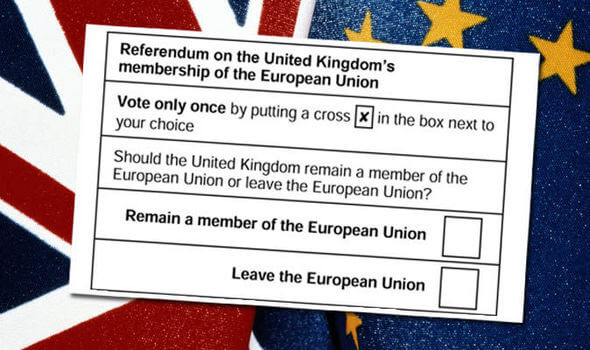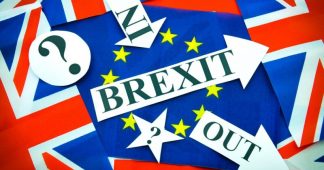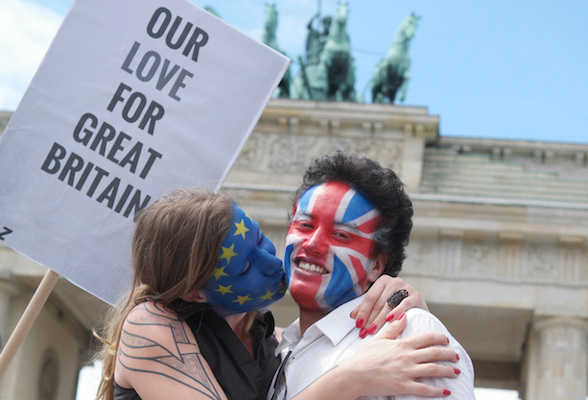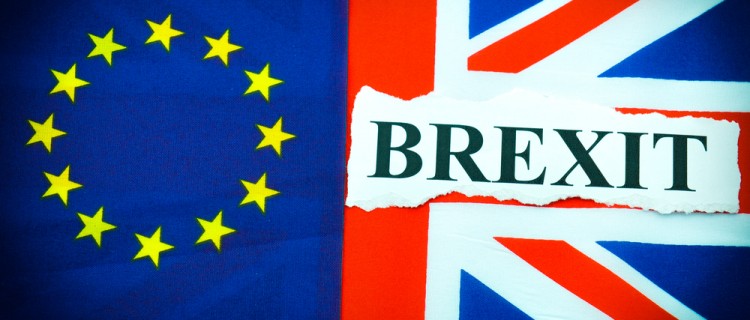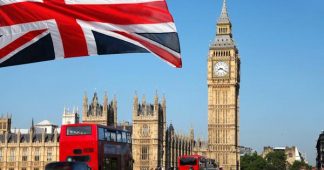By Brendan Donnelly, Director, The Federal Trust
It used to be claimed during the Cold War that in the countries of the Soviet bloc elections could not take place until the government had decided what their result should be. Here, we order these matters differently. We had a referendum on 23rd June about the European Union, but the government has still to decide what its result will be. The widely-advertised “brain-storming session” of Mrs May on 31st August has taken us little further in the search for content to fill out the empty assertion that “Brexit means Brexit.” The only specific matter upon which Mrs May and her colleagues could apparently agree was their hostility to the principle of European free movement. This is not an encouraging basis on which to erect a negotiating strategy for the “sensible and orderly departure” of the United Kingdom from the EU that Mrs May says she seeks.
In the weeks since 23rd June, it has become a commonplace to assert that during the referendum campaign Mr. Cameron mishandled the “migration issue.” The former Labour Minister Ed Balls is the latest commentator to join this chorus of disapproval, suggesting that Mr. Cameron should have promised that even in the event of a “Remain” vote he, the Prime Minister, would continue to press for further restrictions on the right of free movement of EU citizens. This undertaking, Mr. Balls believes, might have provided sufficient reassurance to those concerned by this issue to persuade them to cast their vote to remain within the European Union.
It is however more than doubtful whether such a promise at the last moment would, or indeed should have carried any weight with the electorate. Mr. Cameron’s fundamental errors in handling the issue of free movement within the European Union predate by many months the relatively short referendum campaign. By the time that campaign began in February of this year, the Prime Minister had enmeshed himself in such a web of confusion and self-contradiction on this matter that it was impossible for him to say anything constructive or persuasive about free movement.
As ever, Mr. Cameron’s recurrent and fundamental constraint in dealing with this issue was his desire to manage rather than confront the misconceptions and prejudices of his own party’s most Eurosceptic wing. In the months leading up the European Council of 18th-19th February, he encouraged his party to believe that he shared their view that the presence of free-moving EU citizens working in this country had created an intolerable problem for the United Kingdom. He presented himself as determined in his negotiations with his fellow European heads of state and government to achieve an agreement that would significantly reduce the number of such EU citizens, not least by making it more difficult for them to gain access to welfare benefits. This agreement was, said Mr. Cameron, a precondition for his advocating a “remain” vote in any EU referendum.
But the reality of the settlement achieved by Mr. Cameron on 19thFebruary fell far short of this proclaimed aspiration. The goal itself was anyway never likely to be achievable, nor, given the substantial net contribution of EU free movers to the British public finances, would it have been an economically rational goal to pursue. By setting himself such a self-defeating and unachievable goal, Mr. Cameron fatally undermined from the beginning his capacity to win a referendum to remain within the EU. It is difficult to believe anything said during the referendum campaign could have contributed to unpicking this quandary that Mr. Cameron had contrived for himself.
It cannot be repeated too often that the free movement of labour is a fundamental building-block of the European Union, an element of the sovereignty-pooling which is philosophically at the heart of the Union. In casting doubt upon this principle, Mr. Cameron was conceding a major intellectual victory to his opponents, a victory only enhanced by his own acquiescence in the lazy use of the term “migrant” to describe very different categories of persons. The Conservative Party Manifesto of 2015 set as a goal the reduction of “net immigration” into the United Kingdom. This conflation of EU citizens exercising their free right of movement with individuals from outside the European Union wishing to work in the United Kingdom or to seek political asylum allowed “Leave” campaigners to paint a picture of the United Kingdom utterly exposed by its membership of the European Union to uncontrolled (particularly Muslim) migration from the whole world. Mr. Cameron bears a large portion of the blame for allowing this damaging caricature to take root in the popular imagination. If in the years leading up to the referendum he had used a more reassuring and accurate rhetoric to describe the free movement of EU citizens as a beneficial consequence of the enlargement of the EU always favoured by the British government, his chances of winning the European referendum on 23rd June would have been greatly enhanced.
It is of course generally true that Mr. Cameron’s manifest lack of enthusiasm for the European Union over the past ten years made it more difficult for him to act as a plausible advocate for the “Remain” camp during the referendum campaign. It was perhaps the awareness of the ground that he needed to make up as an apparently passionate convert to the cause of British membership of the Union which led him and the Chancellor to make implausible predictions about the immediacy of economic catastrophe after a vote to leave the EU. But the tawdry and confused debate on “migration” which scarred the referendum campaign has left a particularly damaging legacy for Mrs May’s government in its attempts to “make a success” of Brexit. This legacy is clearly reflected in the divisions within Mrs May’s Cabinet, not merely in regard to how to “make a success” of Brexit, but even what would count as making a success.
Some of Mrs May’s Ministers, like Mr. Hammond, are principally concerned that losing unrestricted access to the European market will be economically damaging to the British economy, especially to the City. Their hope is that a compromise can be found with the EU in which the smallest possible restriction of free movement will be “traded” for the largest possible amount of access, particularly for British financial services, to the European single market. Others, including probably Dr Fox and Mr. Davis, are impatient of such willingness to compromise. Their view is that it is precisely from the messily compromising world of the European Union that the UK voted to emancipate itself on 23rd June. They see no attractions in lengthy negotiations with an organization which they hold in scarcely-concealed contempt.
It may well be that Mrs May comes sooner rather than later to regret her apparently politically astute decision to appoint Dr Fox and Mr. Davis as the leading ministers for Brexit. A majority of members of the present Cabinet favoured the “remain” side of the referendum argument and may well continue to favour, as presumably Mrs May herself does, a negotiation with the rest of the European Union that maintains as far as possible what they see as the desirable aspects of the present British membership of the Union. These Ministers will therefore be looking for possibilities of compromise with the Union. Dr Fox and Mr Davis for their part will be reluctant to accept any compromises with the European Union that can plausibly be represented as being a less favourable form of membership in the Union than that which the UK currently enjoys. Their political position within the Conservative Party is a strong one. Mrs May’s government would find it difficult to survive the resignation of either of them. If Mr. Davis and Dr Fox can overcome even to a limited extent their apparent personal animosity towards each other, then it is they and not Mrs May who will be able to set the terms of the procedure whereby the United Kingdom leaves the European Union. Under their guidance, a confrontational rather than conciliatory approach seems overwhelmingly likely.
Even during the referendum campaign, there were voices raised to point out that the choices offered to the British electorate in the referendum were insufficiently clear, particularly on the “Leave” side. Some of those who voted to leave the Union on 23rd June will have done so in the firm expectation that the UK would continue as a member of the European Economic Area or a similar arrangement; others will have shared Mr. Gove’s view that Albania was an appropriate model for future British dealings with the EU; yet others will simply have voted against what they took to be the shortcomings of the Union with no clear idea of what the alternatives might be. The now apparent divisions within the Conservative Cabinet faithfully mirror these disparities of view.
The government’s interest in popular consultation on European issues is clearly now exhausted. Mrs May has reaffirmed in the strongest possible terms her unwillingness to hold a further referendum on the terms for Brexit or to make these terms the subject of an early general election. It is the Conservative government and nobody else that will decide for what the British electorate voted on 23rd June as an alternative to membership of the European Union. When the Conservative Party has made up its collective mind on that issue, the electorate will in due course be informed.
The high-handedness of the government in this matter could not be better exemplified than by its repeated contention that it is constitutionally entitled to trigger Article 50 of the Lisbon Treaty without Parliamentary endorsement for doing so. This contention is the subject of legal challenge, but it anyway sits oddly with claims about parliamentary sovereignty prevalent on the “Leave” side of the argument in the recent referendum. The referendum that took place on 23rd June was not a legally binding one; less than 38% of the electorate and just over a quarter of the population voted to leave the European Union; an overwhelming majority of MPs favoured and no doubt still favour remaining within the European Union; and the government of the day is still incapable of answering basic questions about the implications of Brexit for the country’s economic and political future. Against this background, it is a striking (some would say impudent) assertion of executive power to deny Parliament any significant role in a procedure that will at the very least jeopardize the accumulated rights and expectations of many millions of British and other European citizens to live and work freely throughout the European Union. To use a narrowly won referendum as a pretext for the extension of executive power unaccountable to Parliament calls inevitably to mind Mrs Thatcher’s prescient warning against referendums as a device of dictators and demagogues.
It has long been a favoured hyperbole of the Union’s critics to compare its workings to those of such totalitarian regimes as the Soviet Union. But there is more than an echo of Lenin’s “democratic centralism” in what Mrs May is now proposing. Once Lenin’s Bolshevik party had concluded its internal debates, it was the role of the state’s institutions to acquiesce in the Party’s adopted decisions. The Conservative government seems to have a similar approach to Parliament in regard to Brexit. If Mr. Corbyn, as his critics claim, is taking the Labour Party in a Trotskyite direction, there would be a pleasing symmetry in Mrs May’s following Leninist precepts. It would not be the first instance of politics making strange bedfellows and their all sharing the same bunk.
